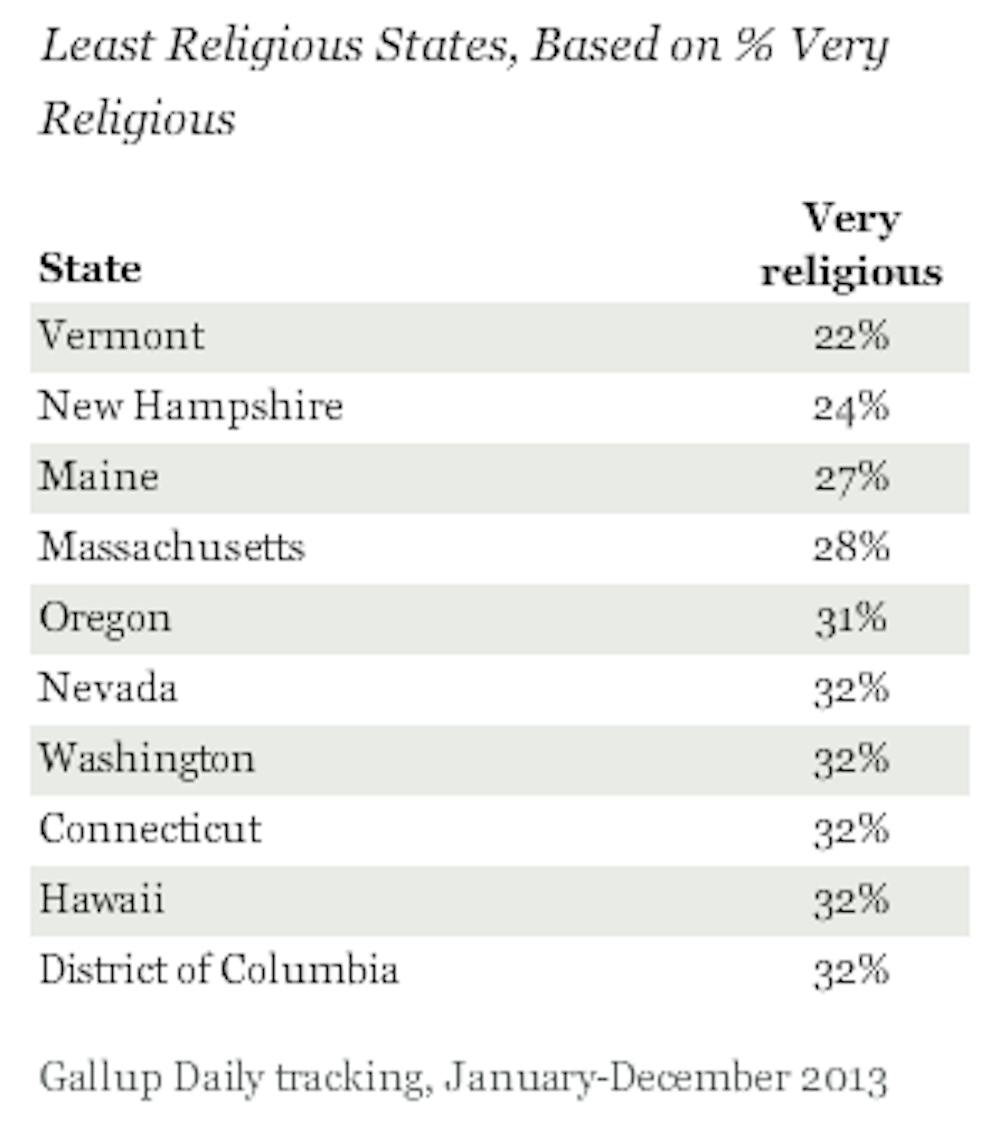Politics and religion often intersect in the United States, and according to a new Gallup poll, that mix is more likely in North Carolina than in most other states.
In the poll, Gallup asked respondents in each state how religious they were. Fifty percent of North Carolinians in the survey said they were “very religious,” making North Carolina the ninth most religious state in the union, according to the poll.
Jason Husser, assistant professor of political science at Elon University, said religion and politics are often intertwined. But as the poll showed, it is more profound in North Carolina.
“Religion has a deeper and broader impact here,” Husser said. “It informs more pieces of legislation than most states.”
Husser said a higher level of religiosity also means preachers and religious figures have more popularity and political power. Similarly, the Elon Poll, of which Husser is the assistant director, found that Billy Graham was the second most admired public figure among North Carolinians.
“They can tell their congregation that certain things are going on in the state,” Husser said. “Moral Monday is an example of this. In Vermont, you’d have a harder chance getting something similar off the ground.”
Jeffrey Pugh, professor of religious studies at Elon, said the politics of North Carolina tend to be more conservative because the dominant religions in the state – Baptist, Presbyterian, Methodist – came from smaller camps in the 1800s.
“They had conservative views on the Bible. The Bible was the word of God,” Pugh said. “They had conservative views on humans. Humans were sinners in need of redemption.”
Pugh said this created a series of beliefs “almost indigenous” to the Southeastern United States, so much so that he said it is hard to tell among current conservative Christians in the state whether their religion informs their politics or vice-versa.
“Christianity itself becomes a captive of the culture,” Pugh said.
Although it is one of the most religious states in the union, North Carolina also has less religious diversity than other states, with the majority of religious North Carolinians identifying as Protestants.
“Catholics have had, at some times, difficulty bridging political gaps with Protestants,” Husser said.
Pugh said less religious diversity can create more homogenous thinking, not only in a community, but also among individuals.
“We tend to stay with people who are like-minded, and if we stay with people along those same lines, we’re less likely to be challenged or entertain the idea that we are wrong,” Pugh said.
But even in North Carolina, pockets of liberal Protestantism exist.
“Methodists aren’t just all conservative. It’s a spectrum,” Pugh said. “But the majority would identify as middle-of-the-road or conservative.”
Husser added that the poll’s results are not as simple as the majority of North Carolinians having strong beliefs.
“Religion can serve as a social network to connect like-minded people,” he said. “It’s not clear if the results are just about these attitudes or about beliefs.”


